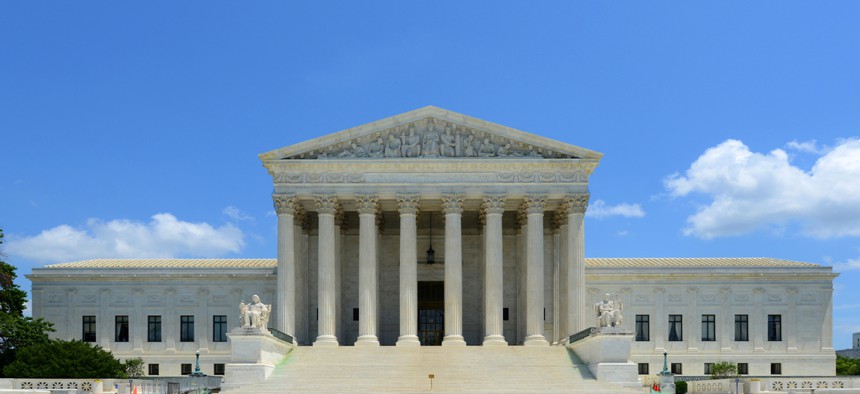How States Could Lead on Reforming U.S. Supreme Court Appointments

United States Supreme Court Building. SHUTTERSTOCK
COMMENTARY | Many states have taken steps to de-politicize their high courts. With a state-initiated convention to amend the constitution, they have the power to propose similar reforms at the federal level.
Filling U.S. Supreme Court seats has always been a hot button issue. But after the refusal of Republicans to fill the vacancy following the death of Antonin Scalia during the last year of the Obama administration and the rush to fill the vacancy following the death of Ruth Bader Ginsburg less than two months before a presidential election, this issue has become even more politically fraught.
Conservative justices now have a 6-3 majority. As such, some Democrats have suggested that perhaps the U.S. Supreme Court should be expanded to address its ideological imbalance, signaling another intense, partisan battle over the future of the highest court in the land could be on the horizon.
Now that President Joe Biden is in office and Democrats have gained narrow control over the Senate, there is probably a desire to push back against the Republican efforts to remake the courts during the presidency of Donald Trump. However, if Democrats opt to expand the U.S. Supreme Court in order to increase the number of liberal justices, down the road a future Republican administration could further expand the court in order to reestablish a conservative tilt. With each swing of power, each party could then enlarge their respective arsenal of partisan justices, ultimately eroding the legitimacy of the judicial process.
What’s the fix? State governments have some ready-made solutions that could help prevent U.S. Supreme Court appointments from continuing down this dangerous path of political football.
The first solution is to incorporate assisted appointments. Missouri pioneered this approach in 1940 by requiring that the governor appoint state judges from a pre-determined list created by a non-partisan commission that reviews candidates based on merit. Today, 34 states and the District of Columbia use some form of assisted appointments.
Another solution is to incorporate retention elections. This is when voters are asked whether an incumbent judge should remain in office. Retention elections allow for judicial accountability as citizens periodically have the power to oust judges that regularly make unpopular decisions. 20 states now use some variation of this process.
If presidents were prevented from nominating controversial candidates for appointment to the U.S. Supreme Court, and if voters had a route to remove justices whose opinions differ with that of the majority of Americans, then neither party would have as much influence on the judicial process, and our country would likely be better for it.
However, mandating assisted appointments and retention elections at the federal level would likely require a constitutional amendment. Per Article V of the Constitution, amendments can be proposed one of two ways: Congress can propose amendments with the approval of two-thirds of both the Senate and the House of Representatives or the legislatures of two-thirds of the states can force Congress to call a convention for proposing amendments. Before any proposed amendments become valid, they would need to be ratified by either the legislatures of, or conventions in, three-fourths of all states.
U.S. Supreme Court Justice Louis Brandeis once argued that “courageous state[s]” can serve as a laboratories of democracy because “novel” policy innovations can be tried out and then, if successful, spread across the nation. Perhaps it’s time for states to take the lead in reforming the U.S. Supreme Court by adopting assisted appointments and retention elections via a state-initiated amendment convention.
Joshua Holzer is an assistant professor of political science at Westminster College in Fulton, Missouri.
NEXT STORY: Republicans in State Legislatures Look to Toughen Rioting Penalties





